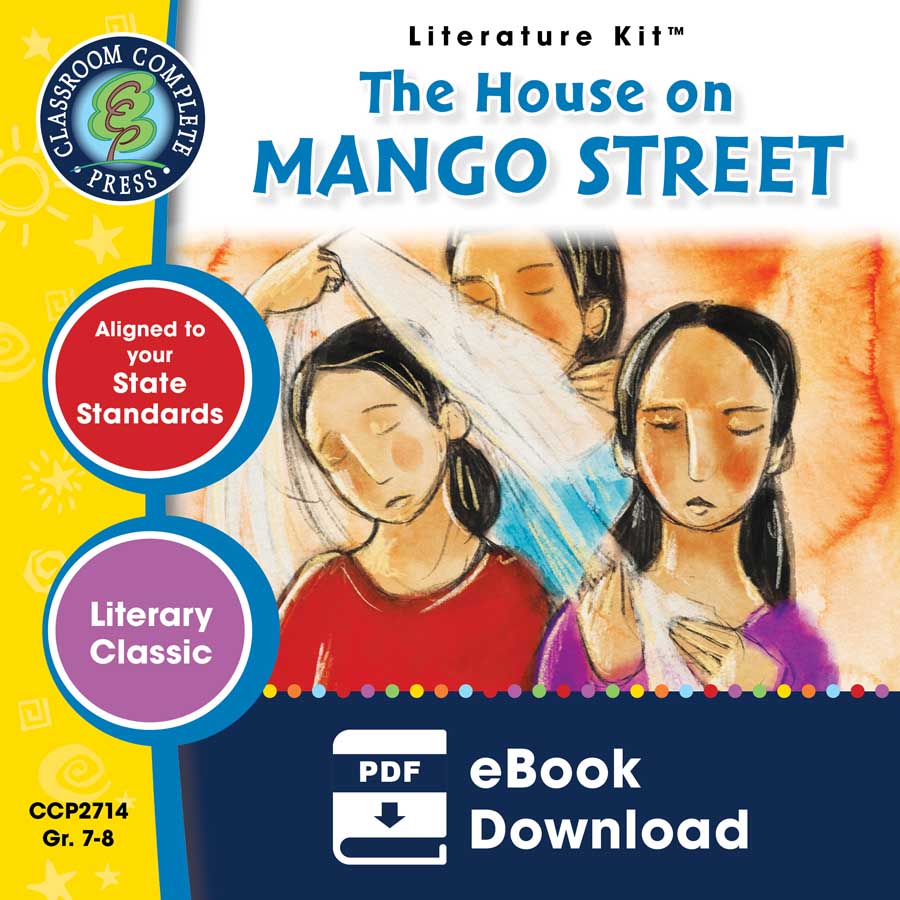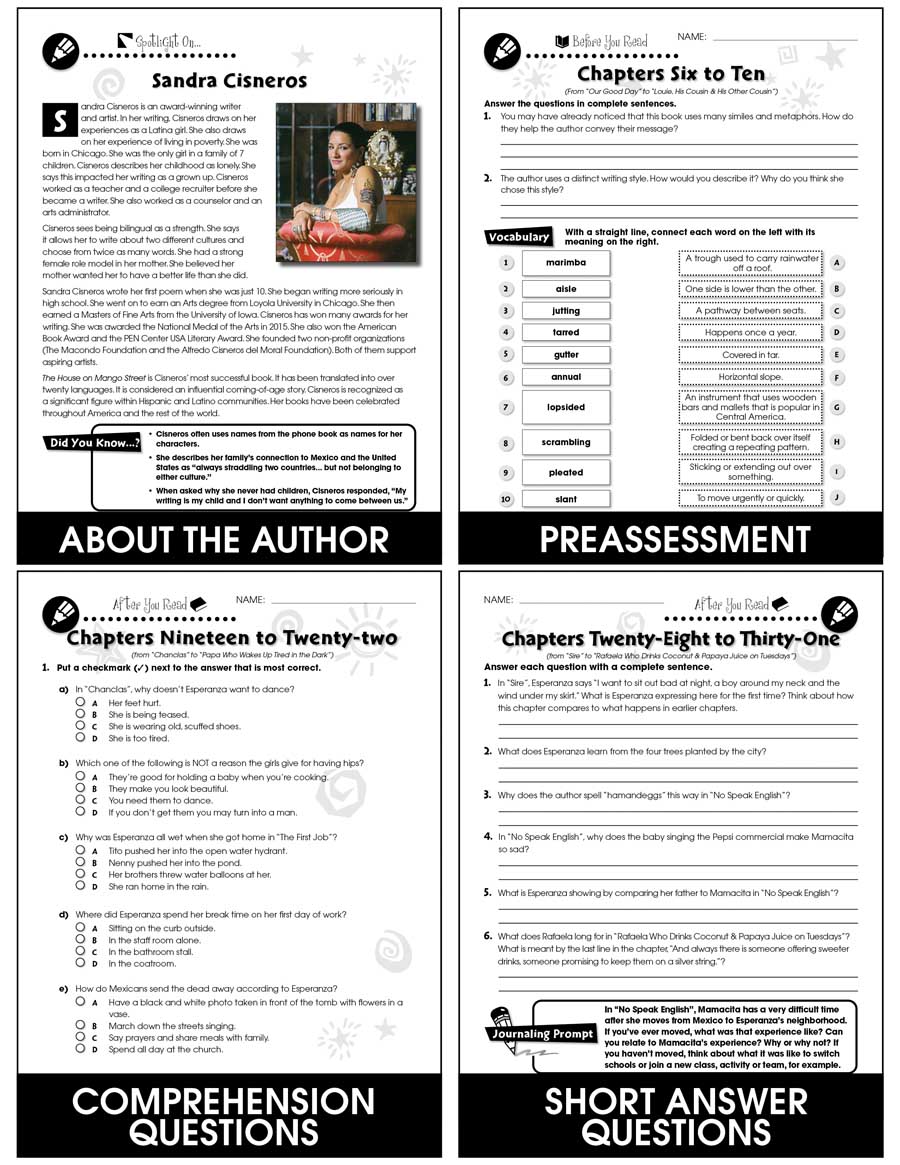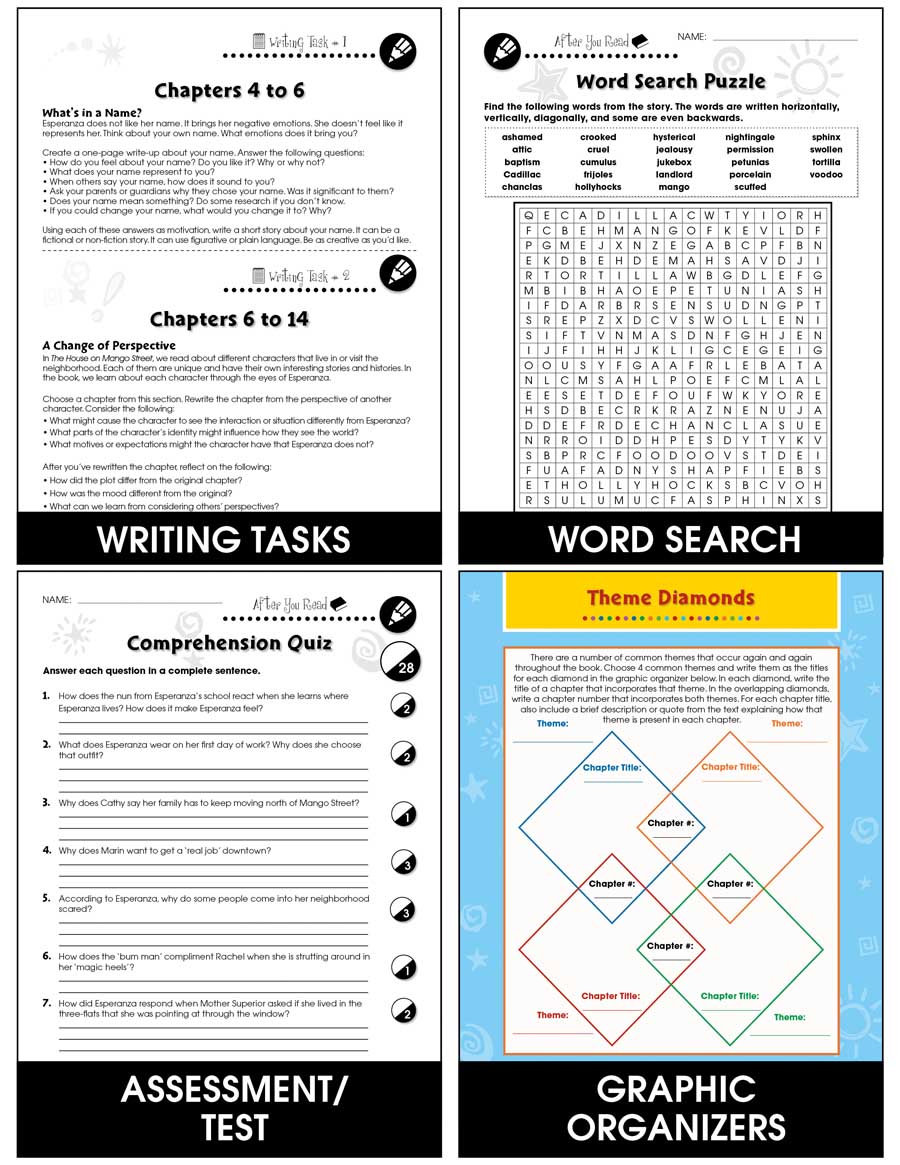Novel Study Guides >
Grades 7, 8 >
The House on Mango Street
The House on Mango Street
Novel Study Guide - Grades 7 to 8 - eBook - Lesson Plan
Order #: CCP2714
ISBN13: 978-0-22830-597-2
Grades: 7, 8
Reading Level: 7-8
Total Page: 55
Author: Taryn McKenna
Tweet
Description
**THIS IS AN INSTANT DOWNLOAD**
See CC2714 for the printed copy.
Experience the discrimination of race, gender and class felt by one girl in this coming-of-age story. The layout and variety of activities in this resource will keep students engaged and involved in the reading. Use metaphors and figurative language to describe things that bring comfort, much like Esperanza’s thoughts on her mother’s hair. Describe Nenny’s personality based on what’s been revealed in previous chapters. Put events surrounding Esperanza’s poetry writing in the order as they occur in the chapter. Explain why the author might choose specific spelling as a plot device. Choose words that mean the same as the vocabulary word found in the reading. Write your own persuasive argument, similar to Esperanza’s argument for eating at school. Record the symbolism of shoes used throughout the novel by detailing their use on a flowchart. Aligned to your State Standards and written to Bloom's Taxonomy, our worksheets incorporate a variety of scaffolding strategies along with additional crossword, word search, comprehension quiz and answer key.
About the Novel:
The House on Mango Street follows Esperanza Cordero as she tells stories from her childhood living on Mango Street in a series of vignettes. Esperanza is a young Latina girl living in a mostly Hispanic neighborhood in Chicago. She is not happy with her home on Mango Street. Her neighborhood is poor, and the people that live within it are treated like second class citizens. Esperanza experiences a lot of hardships growing up, from discrimination against her race, to men abusing their wives. Esperanza witnesses all this in her neighborhood, and vows to make a better future for herself. The House on Mango Street is a coming-of-age story that explores tough topics that force a young girl to grow up quickly.
See CC2714 for the printed copy.
Experience the discrimination of race, gender and class felt by one girl in this coming-of-age story. The layout and variety of activities in this resource will keep students engaged and involved in the reading. Use metaphors and figurative language to describe things that bring comfort, much like Esperanza’s thoughts on her mother’s hair. Describe Nenny’s personality based on what’s been revealed in previous chapters. Put events surrounding Esperanza’s poetry writing in the order as they occur in the chapter. Explain why the author might choose specific spelling as a plot device. Choose words that mean the same as the vocabulary word found in the reading. Write your own persuasive argument, similar to Esperanza’s argument for eating at school. Record the symbolism of shoes used throughout the novel by detailing their use on a flowchart. Aligned to your State Standards and written to Bloom's Taxonomy, our worksheets incorporate a variety of scaffolding strategies along with additional crossword, word search, comprehension quiz and answer key.
About the Novel:
The House on Mango Street follows Esperanza Cordero as she tells stories from her childhood living on Mango Street in a series of vignettes. Esperanza is a young Latina girl living in a mostly Hispanic neighborhood in Chicago. She is not happy with her home on Mango Street. Her neighborhood is poor, and the people that live within it are treated like second class citizens. Esperanza experiences a lot of hardships growing up, from discrimination against her race, to men abusing their wives. Esperanza witnesses all this in her neighborhood, and vows to make a better future for herself. The House on Mango Street is a coming-of-age story that explores tough topics that force a young girl to grow up quickly.







